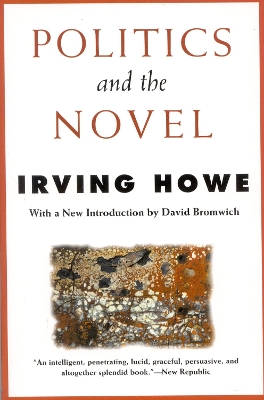A Morningside Book S.
1 total work
Irving Howe's classic investigation of the role of revolutionary ideas in fiction is here reprinted in a new paperback edition. In establishing the role of the political novel and tracing its growth into the twentieth century, Mr. Howe draws his examples from Stendhal's The Red and the Black, Dostoevsky's The Possessed, Joseph Conrad's The Secret Agent, and Ivan Turgenev's Fathers and Sons. He also explains why American novels failed to integrate ideology, including Henry Adams's Democracy, Henry James's The Bostonians, and Nathaniel Hawthorne's The Blithedale Romance. His discussion of political fiction after World War II touches on Milan Kundera's The Book of Laughter and Forgetting, V. S. Naipaul's A Bend in the River, and Alexander Solzhenitsyn's The First Circle, among others. In all, Politics and the Novel offers the most enduring and authoritative view of the subject.
